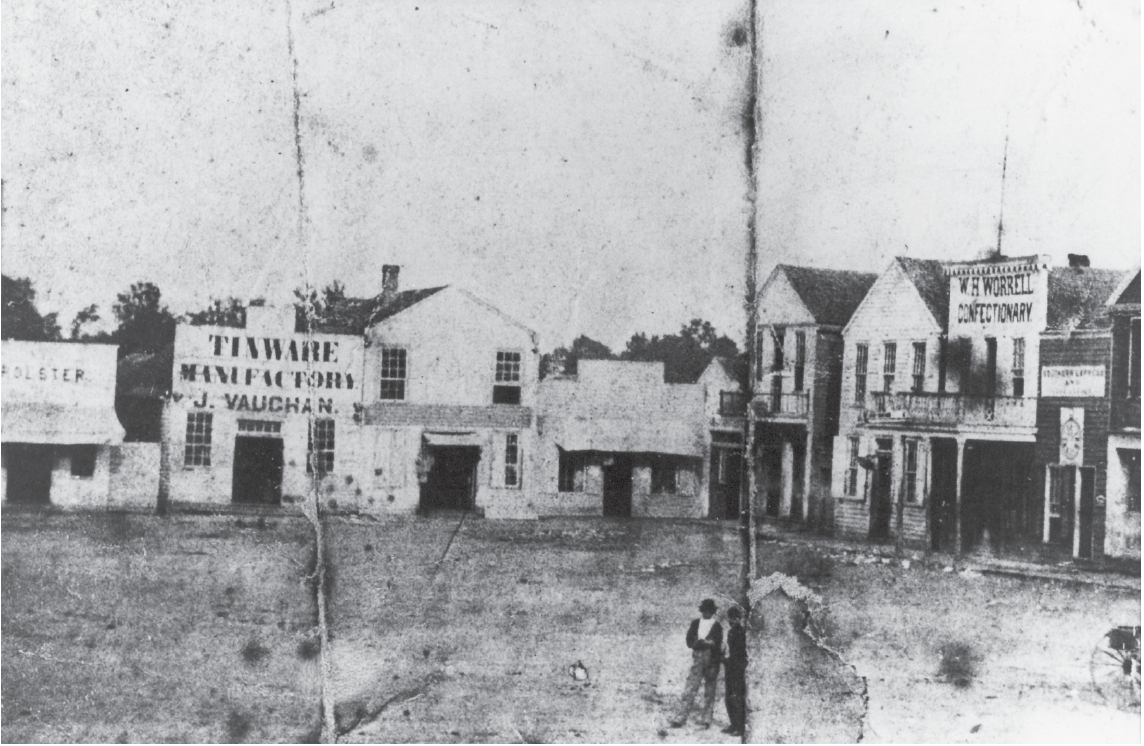In 1844, Lewis Tutt was born in Marion, Arkansas to an enslaved Black woman, possibly named Millie, and her white owner, Hansford Tutt. The family was engaged in the Tutt-Everett War, a feud as bloodthirsty as the Hatfields and the McCoys. Hansford died in 1849. By the time of the Civil War, Lewis was running the farm. Due to hostilities in the region, he escorted his owner, Nancy Tutt, his father’s widow, to Springfield and then stayed for the rest of his life. In 1865, He married Emma Mccullah. In 1874, at the request of the Black community, he was appointed Springfield’s first Black police officer. The police force had been established in 1858. He served a one-year term.
Despite not having had access to formal education, Tutt was a very successful businessman. He engaged in real estate in later years. Earlier, he owned a grocery and provisions store. A newspaper account refers to his confectionary being patronized by white and Black people. This may have been the same or a separate business. He was a trusted member of the community and was elected to city council, served on numerous grand juries, and was an election judge. His store was even a polling place. He was the first Black man to buy a plot in Maple Park Cemetery. Lewis had the body of his half-brother Davis (who was killed by Wild Bill Hickok) moved from a pauper’s grave to his own family’s plot at Maple Park. Davis was Hansford’s son with his wife Nancy. Lewis was appointed by the Springfield Republicans to a Congressional Convention in 1886.
Lewis helped organize Eureka Lodge of Masons, No. 39 and held numerous positions in the lodge. He contributed monetarily to civic improvements for all of Springfield as well as those exclusively for the Black community. He donated to help build the Perkins Opera House; the Springfield, Sedalia, Marshall and Northern Railroad; and the Gulf Railroad Shops. He also contributed to the building of the Benton Avenue
A.M. E. Church, of which he was a trustee, as well as other Black churches. In 1893, the Pictorial and Genealogical Record of Greene County had a full-page biography of Lewis Tutt, the only Black individual so recognized.
A full-column article in the Springfield Republican upon his death in 1900 lauded him as “One of the most prominent and popular colored men in Greene County” and listed his numerous contributions to the community. His masonic rite funeral was held at Benton Avenue A.M.E. Church and was performed by the Grand Master of the State. A newspaper article after the service made a point of saying that the attendance was very large and that both Black and white people were in attendance.
Lewis’s only son, David, predeceased him, so two of his brothers sued Emma as they claimed that she was entitled only to a widow’s portion and since he was wealthy there was more estate than what was allocated for the widow.
The Circuit Court found that one property, where she lived, was hers outright. The brothers were allowed a half interest in the other two properties, but only after all the bills of the estate were settled. The other half belonged to Emma. They were also made to pay the court costs.
Written by: Joan Hampton-Porter, Curator the History Museum on the Square





